The post Prepare for the future with Machine Learning appeared first on Magnimind Academy.
]]>1- Major reasons to become a machine learning professional
![]()
Here’re some major forecasts about machine learning’s future.
1.1- Enhanced personalization
![]()
Personalized recommendations can entice users to complete certain actions. With the help of machine learning personalization algorithms, the information in a data can be synthesized to make appropriate conclusions like a user’s interests. For instance, on an e-commerce website, it can be deduced from a user’s browsing activity that he/she is looking for a garden chair.
1.2- Better cognitive services
![]()
Cognitive services offered by machine learning professionals all developers to incorporate intelligent capabilities into their applications. Developer can empower those applications to perform various duties including speech detection, vision recognition, speech understanding. As machine learning is evolving continuously, we can expect to see the emergence of highly intelligent applications which can increasingly see, speak, hear, and even reason with surroundings.
1.3- Fraud prevention
![]()
Machine learning professionals can analyze transactions of an e-commerce website and the machine will pick out the fraud unlike rules-based, traditional system. In the future, we’re likely to witness machine learning technology becoming more sophisticated and the machines will modify, through self-learning, to prevent fraud.
1.4- Better use of quantum computing
![]()
The machine learning spectrum can be transformed through implementation of quantum machine learning algorithms. If machine learning can be integrated into quantum computers, it could result in faster processing of data that could dramatically accelerate the ability of synthesizing information and derive insights – what the future probably holds for us.
Though many people consider machine learning to be in its nascent stage, its future is clearly bright and so is the future of machine learning professionals.
2- Key career opportunities as a machine learning professional
![]()
Let’s have a look the major job opportunities as a machine learning professional.
2.1- Data scientist
![]()
Professionals, who extract meaning from a massive amount of data and analyze and interpret it.
2.2- Machine learning engineer
![]()
Programmers, who develop the machines and systems that can learn and apply the acquired knowledge without requiring any specific direction or lead.
2.3- Deep learning engineer
![]()
These professionals specialize in developing tasks related to AI with the help of deep learning platforms.
3- Roadmap to become a machine learning professional
![]()
As you’re aware of the reach of machine learning, let’s discuss how you can become a machine learning professional. Though this field involves a broad range of skill sets, there’re plenty of resources like Magnimind Academy that would help you master all these skills. They offer some valuable machine learning mini bootcamps for students with different skill sets. And if you’re interested in becoming a data scientist, you can always join their full-fledged data science bootcamp in Silicon Valley to move toward that direction.
. . .
To learn more about machine learning, click here and read our another article.
The post Prepare for the future with Machine Learning appeared first on Magnimind Academy.
]]>The post What is the role of data science in everyday life and every situation? appeared first on Magnimind Academy.
]]>We often praise the high-tech device or the high-end technology once we leverage its abilities, failing to acknowledge the role of data science in making them happen. In this post, we’ve jotted down some of the most situations where everyone experiences the role of data science.
Here’s how we experience the role of data science in our daily life.
1- Entertainment
![]()
Thanks to data science technologies, platforms like Spotify and Netflix have taken entertainment to another level. From the music you prefer to the shows you want to watch, everything is influenced by data. Netflix develops and curates highly targeted shows by extracting customer preference and behavior patterns from their databases. It customizes the watchlist in accordance with the hottest actors, genres etc by leveraging customer data and viewing habits. Spotify also taps into customer data to customize the weekly playlist especially according to the preferences of individual users.
2- Internet search
![]()
Almost all of us frequently use something like ‘just Google it’ whenever someone gets stuck with something. The phrase has become ubiquitous, but we often fail to recognize the role of data science that’s making it possible. All the search engines like Google, Bing, Yahoo, AOL, Ask etc leverage data science algorithms to come up with the best results for the searched query within a fraction of a second. Without the presence of data science, these search engines wouldn’t have been the same we know today.
3- Online shopping
![]()
Every wondered how e-commerce sites like Amazon come up with suggestions about similar products? They not only bring you relevant products from all the products available with them but significantly enhance the user experience as well. Those notifications popping up every time you browse through an e-commerce platform become possible because of the role of data science playing in the backend. These online shopping platforms dive into massive pools of customer data to comprehend and learn shopping patterns, preferences, and tastes and based on those, they develop customized shopping recommendations for the consumers.
4- Healthcare
![]()
The healthcare industry is transforming rapidly, thanks to the implementation of data science technologies. Data backed by innovative technologies is continually helping the industry in offering better service. Days, when loads of paperwork were required to organize and maintain patient health records, are matters of the past now. Electronic Medical Records or EMRs powered by data science technologies enable healthcare providers to capture patient data within a centralized platform which can be accessed by medical professionals anytime, from anywhere. This leads to more professional supervision and treatment. In addition, wearables and fitness sensors have enabled millions of individuals to take care of their health. Now, everyone can monitor his/her health without having to visit the clinic every time. Even the seniors can monitor their health easily with the help of remote monitoring technology, the success of which is dependent on the role of data science. Any anomaly and fluctuation in their health are conveyed to healthcare providers in the form of messages or alerts, thus empowering medical practitioners to prescribe treatments in real-time.
5- Airline planning
![]()
It’s a well-known fact that the airline industry throughout the world is experiencing heavy losses. Most of the service providers are struggling to maintain their operating profits and occupancy ratio. The need to offer hefty discounts to attract customers together with increasing air fuel prices has made the situation even more difficult. But recently few of these providers have started leveraging data science to gain some profit. In this industry, the role of data science has become huge when it comes to effective planning. With the help of data science, providers now can decide the class of airplanes to buy, decide whether to reach the destination directly or halt in between, predict flight delay, design customer loyalty programs effectively etc. Airline service providers capture and crunch data to obtain valuable insights that help them make better decisions to become profitable.
6- Finance sector
![]()
The role of data science can be clearly observed in the finance sector. There was a time when banks used to experience a huge amount of bad debt and losses each year. However, they had a massive amount of data that was captured during the initial paperwork. With the help of data science technologies, banking companies are now able to divide and conquer data through past expenditures, customer profiling together with other variables for analyzing the probabilities of default and risk. They’re also leveraging the role of data science to prevent financial fraud. Now, banks can successfully track and trace credit card fraud, the breach of important financial data, and any other suspicious activity by leveraging data science tools and technologies. This has helped greatly in strengthening the security of banks and offering optimum protection to valuable customer information.
7- Logistics
![]()
Logistics is another industry where the role of data science is clearly visible. Delivery companies like FedEx, DHL, UPS etc use data science tools and technologies to improve their logistic, which results in better operational efficiency. Today, we can expect our deliveries to be right on time, exactly where and when we ordered it to be – all these are becoming possible by processing massive amounts of data and deriving valuable insights out of that to come up with best solutions.
8- Speech recognition
![]()
These days, speech recognition products like Siri, Google Voice, Cortana etc are becoming increasingly popular. Even if you aren’t in a position to compose a message, you can manage with the help of speech recognition feature. All you need to do is speak out the message only and it’ll be converted to text.
9- Face recognition
![]()
During the initial phase of face recognition algorithms, they used to consider different types of things as a human face. Now it’s fairly impossible, thanks to the role of data science playing behind. These days, algorithms are able to learn by consuming massive amounts of data about what’s a face and what isn’t, what’s a crack on something, and what’s a smile, just to name a few. This process is quite similar to the way human brains work. To an average user, face recognition may not be a big deal but to law enforcement agencies, it can act as a powerful tool.
10- Digital advertisements
![]()
One of the biggest incidents of leveraging the role of data science can be observed in the digital marketing spectrum. From the digital billboards placed at the airports to the display banners on different websites – almost every time data science algorithms are helping businesses to attract customers. You can target digital advertisements based on your users’ past behavior, which is probably the biggest reason why digital ads usually get a lot higher CTR (Click-Through Rate) compared to traditional advertisements.
11- Gaming
![]()
All the major game developers like EA Sports, Nintendo, Sony, Zynga etc use data science to take the gaming experience to another level. Now games are designed with the help of machine learning algorithms that are capable of upgrading themselves as a player moves up to another level.
12- Weather patterns
![]()
There’re satellites and weather sensors are deployed all across the globe. A massive amount of data is captured from them, and then that data is utilized to monitor the environmental and weather conditions. Different agencies use data science technologies in different ways including weather forecasting, in comprehending the patterns of natural disasters, to study global warming and many more.
13- Improved safety
![]()
The role of data science is being leveraged for reducing traffic accidents, law enforcement, and much more. This helps organizations develop the proper contingency plans to maintain the safety of their stakeholders. Many law enforcement agencies use data science tools and technologies to stop crime. They capture data which enables them to analyze and predict crimes. This information helps agencies to disperse officers where they’re most needed.
Final Takeaway

As you can see from the above real-life examples, the role of data science is evident in almost every aspect of life. Data science comes with boundless potential. Almost everything on earth that generates data comes within the boundaries of this field. The above ones are just some of the many scenarios where data science is playing crucial roles. Data sources, as well as, amounts are growing only and so is our ability to turn them into knowledge. These days, data science is surely creating a wave of positive change around us and will become even more widespread and integrated into everyday life in the coming future.
. . .
To learn more about data science, click here and read our another article.
The post What is the role of data science in everyday life and every situation? appeared first on Magnimind Academy.
]]>The post Applications of Machine Learning in Tech Giants – Data Science Bootcamp in Silicon Valley appeared first on Magnimind Academy.
]]>As a matter of fact, those, who’re making the most of technologies like artificial intelligence and machine learning, are the tech giants. The finest examples of fruitful, profitable use of these technologies are none other than Facebook, Google, Netflix, Amazon, Apple, NASA, just to name a few. For all these tech leaders, artificial intelligence and machine learning form the core of all their strategic decisions. Here, we’ve put together some of the tech giants that are leveraging the power of these technologies to a great extent.
1- Google

According to experts, Google is one of the most advanced tech giants in the fields of artificial intelligence and machine learning. Fundamentally, Google’s core search business is based on machine learning and predictive analysis to deliver search results which are monetized through advertising. It uses artificial intelligence in a number of its products and services like image recognition for Google Photos, speech recognition for Google Home and Google Assistant, and more.
When it comes to tools, Google developed TensorFlow – a machine learning system free to anyone. However, probably the strongest point of the tech giant in these technologies is the diverse range of its cloud-based services offered to developers, like the Google Cloud AI machine learning tools.
2- Netflix

It’s a widely-known fact that Recommendations Systems are used by Netflix for suggesting shows or movies to its customers. It makes use of the watching history of other viewers with similar tastes to recommend what you might be most interested to watch next so that you can stay engaged and continue with your subscription.
Some other lesser-known features powered by artificial intelligence and machine learning include personalization and auto-generation of thumbnails, improved streaming quality, optimized stages of production, among others. Machine learning models are leveraged by the tech giant to create relationships between unstructured data and turn that into numbers. Netflix has surely accomplished a phenomenal job of implementing artificial intelligence, machine learning, and data science the right way to develop a product-based approach.
3- Apple

While the tech giant may have lagged its other peers in terms of artificial intelligence investments, it uses the technology to support a huge range of its applications – from optimizing battery usage in the devices to fraud detection and Siri. Today, millions of users talk to Siri and the tech giant is looking to extend its talking assistant’s application through its advanced smart home device, the HomePod.
The company has also allocated a significant amount of resources for the development of its machine learning systems, the majority of which are available via its developer program. In addition, it has made stakes in artificial intelligence startups. Some of these include Vocal IQ – a platform for voice interfaces, Emotient – it develops facial recognition technology, among others.
4- Microsoft

The tech giant has been quietly developing one of the most respectable portfolios of artificial intelligence powered applications, platforms, tools, and services. It employs artificial intelligence across its product portfolio in a large number of ways like building apps in Azure, chatbots in Skype, powering search results in Bing, automatic text transcription in Teams, among others.
It also offers a large portfolio of tools and platforms on Windows, Visual Studio, and Azure for developers. In the machine learning space, Microsoft’s most significant acquisition was Maluuba, which is famous for offering natural language understanding technology.
5- Pinterest

In the social media landscape, Pinterest holds a curious place with its primary goal of curating existing content. And it invests in technologies to make the process more effective. Kosei, a machine learning company was acquired by this tech giant in 2015.
Today, virtually every aspect of Pinterest is touched by machine learning – from content discovery, advertising monetization, spam moderation to business operations, and more.
6- Baidu

Google isn’t the only tech giant that’s exploring machine learning for its search feature. Baidu, the Chinese search engine, is also investing significantly in the applications of artificial intelligence. One of the most innovative developments of this company is Deep Voice.
It’s a deep neural network that’s capable of generating entirely synthetic human voices which are highly difficult to distinguish from actual human speech. Based on machine learning as its underlying technology, this innovation can offer major benefits for voice search applications and lots of other potential uses like biometric security and real-time translation.
7- NASA

Sometimes back, the leading American space agency notified the world about the discovery of Kepler-90i utilizing Google machine learning. Machine learning was used by NASA to help identify planets which were missed by the previous searches of Kepler data.
It’s also researching to develop more distortion free and efficient communication networks by using an artificial intelligence based cognitive radio which would minimize noise distortion and increase reliability.
8- Salesforce
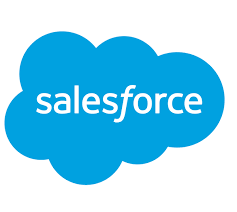
As expected, the world’s leading sales platform is one of the major buyers of artificial intelligence companies over the last few years. One of its most highlighted machine learning systems is the so-called Einstein technology. It’s said to have enabled Salesforce users to develop much more detailed customers’ profiles.
9- IBM
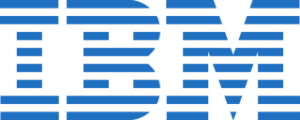
One of the world’s oldest and largest legacy technology companies, IBM has successfully managed to transition from earlier business models to modern revenue streams – consider Watson, one of the tech giant’s renowned product powered by artificial intelligence. Watson has been successfully deployed in several medical centers and hospitals in recent years, where it demonstrated its skills for making accurate recommendations to a great extent. Watson machine learning technology is now being offered by IBM on a license basis – one of the frontline examples of an artificial intelligence application being offered in such a manner.
10- Factors that help these tech giants to make most of artificial intelligence and machine learning

It’s now evident that those who’re making most of the advanced fields like artificial intelligence and machine learning are the tech giants like the above ones. Here, we’re going to examine the key factors that make these tech leaders actually able to leverage these technologies on an entirely different level. Let’s have a look at them.
10.1- Data
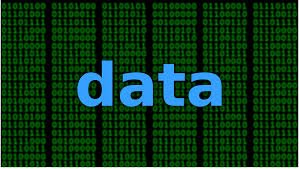
All these tech giants can access may be more data compared to any other organization in the history of the tech world. There’re lots of reasons behind this including lots of users, lots of traffic, presence on digital platforms, and the culture of connectivity. If you consider the above companies, you can find that most of them were born for the internet age with a clear understanding that systems have to be connected.
You may often hear things like ‘digitizing’ mentioned by numerous organizations. What makes these tech giants apart from the pack is that they’re not concerned about digitizing because they were born digital.
10.2- Talent

When it comes to tech giants, the appeal that they possess in terms of talent, are some of the finest and hottest in today’s tech landscape. So, they’re naturally able to attract tremendous talents with fattier pay packets.
11- What’s in it for you?

We’ve seen some older technological trends that are obsolete now. So, you may ask why should you learn artificial intelligence and machine learning? Unlike other technologies, both of these two technologies have the ability to transform the future, especially if you consider the massive amounts of data being generated every single day. We can expect to see artificial intelligence deployments that have the ability to recognize, modify based on their internal architecture with minimum human supervision in sometime soon.
If you consider Baidu from the above list of tech giants, in near future we may not be able to distinguish the difference at all. Advancements in generative modeling will lead to increasingly sophisticated voices, images, among others. Apart from these, artificial intelligence and machine learning have many other advanced applications that we may be able to experience in the future. If you still haven’t given joining the fields of artificial intelligence and machine learning a thought, probably this is the best time to do it.
In conclusion

If you consider the most impactful technological developments in recent tech history, artificial intelligence and machine learning have to be among them. Few fields come into existence with an objective of disrupting human lives, and these two surely belong to them.
To transform the future for good, tech giants are looking for people with skills, talent and development experience in the fields of artificial intelligence as well its branches like machine learning, deep learning etc. By investing a small amount of time, money and effort, you can become a part of these tech giants and the upcoming exciting future.
. . .
To learn more about machine learning, click here and read our another article.
The post Applications of Machine Learning in Tech Giants – Data Science Bootcamp in Silicon Valley appeared first on Magnimind Academy.
]]>The post 7 Things That Convince People to Become a Data Scientist appeared first on Magnimind Academy.
]]>Today, big data is being heavily used almost everywhere – from the concept of self-driving cars to healthcare industries to tech giants, just to name a few. All these requirements raise the demand for efficient data scientists to a great extent. In addition, the role of data scientists, which has been proclaimed to be the 21st century’s hottest job, will only continue to get bigger and better in the upcoming years.
1- Things that attract people to become a data scientist

There’re enough facts that indicate a clear lack of competent data scientists for filling the increasing market demand. So, it’s no surprise that people from different fields are trying hard to step into the field and to become a data scientist. If you too belong to this league, you may be wondering what would one gain from becoming a data scientist, especially when he or she needs to spend thousands of dollars together with a significant amount of effort and time?
Let’s explore seven major advantages of becoming a data scientist.
1.1- You’ll get to enjoy more employability

In today’s data-driven world, almost every industry needs to take advantage of data in order to sustain and grow. So, knowledgeable and proficient data scientists are required by employers in every industry – from tech to healthcare to finance to automobile, and many more.
There’re thousands of vacant data scientist positions available for competent people, who can demonstrate that they’ve the credentials and skills to fill them. It’s important to note that many of these positions are high-paying, coveted jobs with giant companies. So, for candidates who’re looking to take their career to the next level, becoming a data scientist is most likely the best way to enter an extremely rewarding field. Also, for employees who’re stalled in their present position, becoming a data scientist can greatly help them move up the ladder quickly in the field where they’re already working.
1.2- You get to become non-negotiable for companies and businesses

This is one of the biggest reasons why people are striving to become a data scientist. Put simply, success in today’s business landscape heavily depends on comprehending and making the right decisions based on insights derived from data captured through different sources. Companies or businesses that don’t accomplish this at the right time will fail to stay in the competition for long and may have their business prospects severely damaged.
As revealed by various reports, there was an acute paucity of data scientists in the U.S. alone. Such a paucity is a key barrier to innovation and can easily truncate the prospect of businesses. As a result, the role of data scientists has become non-negotiable for companies looking to rise above the competition.
1.3- You get to grab the top-paying job

The emergence and prospect of big data has generated a significant number of job titles that pay attractive salaries compared to other tech-related jobs. We’ve already discussed that data scientists are needed by almost every industry. Today, the requirement isn’t only limited to the IT domain, but it has spread across all the major industries.
So, it can be said that for a data scientist, sky is the limit. In addition, data scientists who hold a Master’s degree or a Ph.D. degree can earn more than their relatively lesser educated peers and with a couple of years of experience, the pay packet would become even fattier.
1.4- You get to work in a rapidly evolving field

The field of data science is developing quickly and the necessary skillsets are also changing fast over time. Skills that are necessary to become a data scientist today may not be of that much importance tomorrow. So, as a data scientist, your learning never becomes stagnant.
On a continuous basis, you get the chance to work with new technologies and tools that are developed and encouraged. This kind of an exciting work environment is another key factor that motivates many to become a data scientist.
1.5- You get to work with multiple high-end tools

There’re very few fields where professionals get to work with multiple, advanced tools. Once you’ve succeeded in your effort to become a data scientist, you hold the chance to gain a huge amount of proficiency over multiple tools by working with them during various stages of your job responsibilities. For example, you may use SQL to capture and fetch information, process it using Pandas, develop machine learning models with the help of Python’s learning packages, use D3.js to demonstrate the results, and many more.
You may also need to use big data tools like Spark and Hadoop for performing certain tasks. This ability to work with a diverse range of high-end tools is another major triggering factor that encourages lots of people to become a data scientist.
1.6- You get the chance to work with the giants and at different roles

You can apply for jobs in giant companies like Apple, Amazon, Uber etc as a data scientist. For example, Apple utilizes big data to decide on its product features, while data science is used by Amazon to sell products by strategically recommending them to consumers. The surge pricing of Uber is a great example of how the company uses data science. Also, as a data scientist, you become able to fit into different roles when it comes to solving real-world problems.
Every single day, a huge amount of data is generated by people as well as large and small companies. To help the companies get useful and actionable insights from the captured data, the expertise of data scientists is required at different stages. Not every job in today’s world offers this level of flexibility and such vast and exciting learning opportunities.
1.7- You get to build a safe career

We’ve seen that many new technologies come and go, and that’s exactly why many people think that every technology that shines in the tech domain comes with a somewhat fixed tenure of existence. But this isn’t the case with data science. As a data scientist, you should always try to put your best foot forward to learn new technologies and tools, as and when they arrive. It has become evident that different aspects of today’s tech landscape, including data science, have started becoming automated. What it actually means is that some areas will experience automated processes but the data science field will continue to grow and the need for data scientists will continue to increase as well. Data scientists with the right skill and mindset will continue to be in demand, probably in wider fields than today.
Apart from these seven reasons, there’re some other factors as well that attract people to become a data scientist. For example, data scientists need to work with different technologies and different programming languages, and use different tools to solve real-world business problems. During those processes, they achieve mastery of various aspects. When you’ve this amount of expertise together with the knowledge of operational methods of different industries, it becomes much easier to establish own business. There’re lots of people who always dream about developing their own businesses and working as a data scientist can immensely help them in accomplishing their endeavors.
2- Things to keep in mind when you’re trying to become a data scientist

If the above reasons have convinced you enough to become a data scientist and you’re ready to start your journey, there’re some things that you should keep in mind to succeed. First of all, there’re different avenues to become a data scientist. You can take the traditional route or attend a data science bootcamp or be a self-taught data scientist. Among all these, the second route i.e. a data science bootcamp is the most popular and probably the most effective one to become a data scientist. When you’re getting enrolled in a bootcamp, go through the curriculum offered meticulously, and compare the cost, the success rate, and the post-program guidance with other data science bootcamps. Though by attending such a bootcamp, you’ll be able to become a data scientist in a shorter period of time and at a lesser cost, it’ll still cost you thousands of dollars and a significant amount of time and effort. So, it’s strongly recommended to take your pick wisely.
Conclusion

Finally, you should try to become a certified data scientist as a majority of the giant companies prefer certified candidates over non-certified ones. As a certified data scientist, it will not only become easier to get a coveted job but also greatly help you in gaining smooth promotions in the organization. Certification brings enhanced trust in a candidate as it’s believed that he or she will be able to handle the job responsibilities more efficiently than his/her non-certified peers.
. . .
To learn more about data science, click here and read our another article.
The post 7 Things That Convince People to Become a Data Scientist appeared first on Magnimind Academy.
]]>The post 5 Tips for Participating in a Data Science Bootcamp appeared first on Magnimind Academy.
]]>So, how do you prepare to step into the data science field? Though there isn’t any standard roadmap to follow to become a data scientist, there’re some options used by aspiring candidates like going through the traditional route, becoming a self-taught professional, or attending a data science bootcamp.
Among all these options, the last one i.e. attending a data science bootcamp has become the most preferred option among aspiring candidates. This is because these programs offer a multitude of benefits that are impossible to find if you follow any other option.
However, participating in a data science bootcamp and completing it successfully isn’t as simple as many may think and/or express it through their reviews on the web. In reality, there’re participants who fail to complete the program successfully or fail to make the most out of it.
In this post, we’ve put together five key tips that would help you survive a data science bootcamp and embark on your journey to become a data scientist.
1- Define your learning goals

What exactly motivates you to join a data science bootcamp? To switch into the data science field, expand your present skills, or just your personal interest? Write it down and review it frequently. Because there’re high probabilities that things will get tough and you’ll hit inevitable roadblocks, and it’ll be your goals that’ll help you get through.
You should also understand that participating in a data science bootcamp may sometimes feel like a difficult task. This is because participants of the program come from different backgrounds and with different levels of strengths and weaknesses. Given the wide spectrum of addressed topics, it’s quite normal if you find yourself a bit overwhelmed. Again, it’ll be your goals that’ll help you maintain focus and encourage you to invest your time and effort on what you want and need to learn exclusively.
2- Understand the power of preparation

A data science bootcamp is an intensive, fast-paced course where you get to learn both technical and non-technical skills that are relevant to the present-day data science industry. However, the reason we’re trying to emphasize on preparation is because graduating from a data science bootcamp successfully is difficult. While these programs greatly help aspiring data science professionals to step into the field by eliminating the need of following a complicated degree path, having a little bit of preparation can go a long way in sailing through the program.
Ideally, you should have a good understanding of statistics, probability, linear algebra, and Python, among others, before attending a data science bootcamp. Though there’re some good amount of resources available that would help you to gain this understanding, taking online courses is probably the best one among them. If you can pursue a data science preparatory course from the same institute where you’re planning to do the data science bootcamp from, it’d be even better.
3- Work hard to keep up with the pace

Put simply, a data science bootcamp offers a great deal of information crammed into a comparatively short amount of time. So, it’s quite normal that no participant is able to maintain the pace always. There’ll be lots of assignments, lectures, sessions, discussions etc which can easily make you feel overwhelmed. Here’re the things you should follow at the very beginning of the data science bootcamp.
- Start your assignments from the day they’re given to you. You don’t need to finish them immediately but something like going through them thoroughly will make them much easier and will also help you get an overview of them.
- When you’re participating in a data science bootcamp, falling behind isn’t an uncommon thing. However, when you actually do, it’s important to manage your current assignments. Participants usually fall behind on something they find more difficult. While it’s quite tempting to try to complete the earlier things before working on your present assignments, you shouldn’t do that. Instead, you should focus on the current ones so you don’t fall behind further.
Apart from assignments, you should also try not to be too selective about the things you need to work on. Remember that since you get only a fixed amount of time in a data science bootcamp, being too selective will probably hinder your progress.
Ideally, you should always keep your mind open to more common topics. Even if those subjects aren’t among your preferences, you should focus on mastering them. The program offered at a data science bootcamp is usually well thought out, structured, and aimed to meet the industry requirements. So, you should try to learn everything the program offers to make the most out of it.
4- Be ambitious but understand your limits

We’ve already discussed the importance of defining your goals. However, setting unrealistic goals won’t help you reach anywhere, apart from wasting your time, money, and effort that you invest in the data science bootcamp. If you want to stay within your comfort zone, learning can become difficult.
So, you should expect to get hurt by the program every now and then. If it doesn’t happen, you’re most probably not making much progress and/or aren’t paying complete attention. Ideally, you should try to build a strong foundation with your newly acquired skills in the data science bootcamp when doing assignments during the program. In addition, to make steady progress, you can deal with the highest-risk problems first and then move on to the easier ones.
5- Leave your ego at your home

Full-immersion data science bootcamps are intense and it’s quite easy to try to self-protect, and to get defensive. However, the truth is you’re not attending a data science bootcamp to impress someone. So, you must be open to learning and fully admit if you don’t know something.
As we’ve already discussed earlier, participants in a data science bootcamp can come from a diverse range of backgrounds. So, some may learn faster or already have more experience with the fundamentals than you do. It’s important not to compare yourself to others because you’re not there to win a race against your fellow participants. Also, you shouldn’t feel embarrassed to ask questions. Sometimes, the unasked questions are the key to mastering a concept.
Apart from these tips, you should take some time out to review your progress. So, go back and review earlier lessons from the program once a week at the least. This proactive methodology helps to strengthen your concepts and accelerates your learning. Eventually, your response to certain challenges will become automatic.
6- Key things to keep in mind when selecting a data science bootcamp
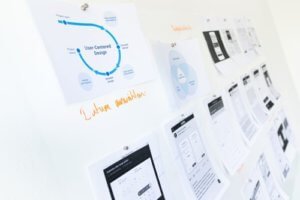
The internet is certainly a treasure trove of information. So, it’s obvious that every aspiring data science professional searches it first when s/he plans to attend a data science bootcamp. With the skyrocketing demand of data scientists, there’s a lot of schools that have started organizing data science bootcamps though some of which may not be able to rise up to the expectations of the participants. So, we strongly suggest you to focus on some critical factors before investing your money, time, and effort in a data science bootcamp. Let’s have a quick look at them.
6.1- Cost

While data science bootcamps are significantly more affordable compared to other traditional programs, the cost has to be within your budget. Also, there’re programs where additional days bring additional costs in different ways that you may not have calculated before joining the program. So, it pays to make all these things clear before getting enrolled.
6.2- Success rate

Put simply, data science bootcamps aren’t for everyone and not every participant gets a job after finishing such a program. This happen mainly because the success rate depends on the efforts given by the participants to a great extent.
Also, sometimes data science bootcamps don’t count students who don’t remain in touch with them when calculating the success rate. So, don’t blindly trust the numbers you’re being given. Instead, ask questions like if the figures includes every participant who enrolls for and completes the bootcamp, or if it takes into account just the people who got a job after doing it.
Wrapping up

While a data science bootcamp is intensive and needs a participant’s complete attention to help him/her proceed toward success, they’re really powerful at the same time. So, remember the above tips, try to adopt a growth mindset, work truly hard, and take your time to rejuvenate in-between the information-packed study sessions. This way, your data science bootcamp experience will surely be excellent.
. . .
To learn more about data science, click here and read our another article.
The post 5 Tips for Participating in a Data Science Bootcamp appeared first on Magnimind Academy.
]]>The post What if Data Scientists have hourly wage? appeared first on Magnimind Academy.
]]>So, if you’re a fresh data scientist and trying to get a monthly job, the average data scientist wage should be good for you. However, if you don’t like to join a full-time job and the freelance or consulting route instead, the scenario would be entirely different.
In this post, we’re going to explore what would be the scenario if data scientists go for an hourly wage? And what should be the solution for freelance or consultant data scientists?
1- What you can expect to see if you prefer hourly data scientist wage?

When it comes to freelance or consultant data scientists, most of the hiring companies look for the cheapest one with a minimum set of qualifications that would be required to perform the task. But still, qualified data scientists are in a position to charge more than other types of business analysts or developers.
On average, freelance data scientist wage can range from $36 – $200 an hour with around $400 being an average project cost. However, these rates can easily go up if the client needs more specific skills such as Spark, Scala etc. Apart from this, the majority of companies that hire data scientists on an hourly basis, consider the fact that data projects are usually long-term commitments, so they also have some kind of a retainer arrangement, offering the hired person a good amount of assurance.
2- Things you can do to be able to get the maximum hourly data scientist wage

The convenience of a flexible work schedule together with attractive pay is bringing a significant number of data scientists into the freelancing market. It directly translates into a higher level of competition when it comes to finding work.
Here’re the things you should do to prove yourself as a truly deserving candidate for a high hourly data scientist wage.
2.1- Establish your presence on freelance job portals

When it comes to working as a freelance data scientist, there’re lots of job portals available on the web that can connect you to potential clients who’re looking for people like you. Some of the most prominent portals include Freelancer, Upwork, Fiverr, among others.
2.2- Have your personal website

In this digital world, it has become almost imperative for every service provider to have a robust online presence. And when it comes to freelancers who usually don’t operate from a physical setup, having an online presence is of utmost importance.
One of the most fruitful ways to establish yourself as a freelance data scientist is to have your personal website. It’ll work like your portfolio that can be seen by the world, which is probably the biggest priority of any freelance service provider. You can always rise above the competition with a website that promotes you as a brand and what you do.
When creating your website, there’re some things you need to completely focus on. First thing is your website’s homepage. Potential clients need to understand who you’re and what you actually do. As a data scientist, you should try to make it data science-centric to attract clients. Second, comes the services section which needs to be detailed and clear in every aspect. Here, you need to mention all the services which you’re going to provide a client with. In the context of pricing, you’ve to perform a detailed research to get an idea about the average data scientist wage on an hourly basis. However, it’s always suggested to keep your prices lower initially to compete with other freelancers. Once you’ve established yourself, you can increase it always.
Projects section of your website is another one that has to be created with utmost precision. This section needs to highlight all your best previous works to help potential clients gauge your expertise level. If you’re a fresh data scientist trying to step into the freelance domain, you should do some public work to be able to display your freelance work experience. If you’ve done some work as a data scientist, make sure to ask those clients for testimonials. That’s one of the easiest and best methods to demonstrate your ability and work experience. Last comes the contact section of your website. Make sure you offer potential clients every possible way to reach you, from social networks to phone numbers to email addresses to contact form.
2.3- Join community groups

Once you’ve created your own website and a presence in online job portals, it’s time to establish yourself as an expert of the field on the internet. The web is filled with forums and communities for data scientists who share ideas and learn from each other. Be sure to participate on a regular basis to advertise your skills to your fellow members as well as potential clients.
If you get a chance to collaborate on projects, put your best effort in to demonstrate your expertise. Apart from this, you should try to create a blog and write about data science on a regular basis. It can be about the projects you’ve worked on or an explanation of a difficult concept.
2.4- Browse the web widely
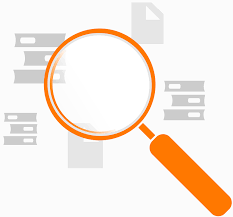
Similar to the full-time domain, data science jobs go by different names besides data scientist in the freelance world as well. These may include data analyst, product analyst, quantitative analyst, machine learning engineer, among others.
Often, different clients use different names for almost similar roles. Try searching for the above terms to find freelance positions and after short-listing them, use their description and job responsibilities to evaluate the fit.
2.5- Apply wisely

You can always apply for all the freelance data scientist jobs posted in the job portals or that you’ve found on the web, but that won’t help you much. Our suggestion is, instead of applying to every freelance data scientist position you come across, think about the specific areas you want to work on. For example, you may have strong statistical skills and feel comfortable working with messy data. So, if you find a freelance position that requires strong coding skills, in particular, you shouldn’t be applying for that, especially if you’ve projects related to your preferred areas.
3- How can you increase your hourly data scientist wage?
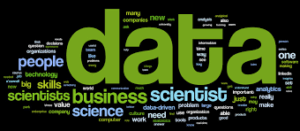
Once you’ve established yourself as a freelance data scientist, it’s time to focus on increasing your wage, or you can say your profit margin also. Let’s have a look at some ideas.
- Try to work on difficult stuff. Avoid working on stuff that a lot of freelancers can perform. Remember that in the freelance domain, data scientist wage is directly proportional to the difficulty level of the project. So, if you’ve the expertise to handle difficult projects that a very few other service providers can handle, you’ll be able to ask to increase your wage.
- Be sure to convince potential clients about the value you’d be able to add. There’re lots of clients who won’t mind you paying a much higher hourly data scientist wage than the average if you can actually offer that much of proportional value.
- Outsource easier tasks like data gathering, reporting etc to lower your bill. Hire someone on an hourly basis for those jobs and keep high-level stuff on your hand.
- Try work on big and long-term projects as they tend to not only give a better wage but also work assurance for a longer time.
- Negotiate whenever possible even if the hourly wage is more than what you usually charge. However, these negotiations entirely depend on the client and your bargaining position. If you possess a rare skill then it’s going to be difficult for your client to find someone else, so you can always ask for a better hourly wage. Ideally, you should aim high first so you’ve room to compromise.
Learning should never be stopped, especially when you’re in the freelance domain. If you fail to stay on the same page with the industry trends, latest tools and technologies, other freelancers will most likely to outperform you.
When it comes to learning, there’re hundreds of resources like blogs, online forums etc are available for data scientists. If you continue to upgrade yourself, you’ll be in a much better position to ask for a better data scientist wage.
Final takeaway

Job hunting is always stressful, especially if you’re looking for freelance opportunities and trying to establish yourself as a service provider. Consider the above as starting points of your freelance data scientist career, try to avoid common mistakes, and chalk out a clear strategy that you’ll be following throughout your freelance career.
You should also check out meetups and conferences on data science. Sometimes potential clients visit these meetups and conferences to find talent. It’s always important to develop your network before you actually need it in your freelance career.
. . .
To learn more about data science, click here and read our another article.
The post What if Data Scientists have hourly wage? appeared first on Magnimind Academy.
]]>The post Data Science in 10 Pictures appeared first on Magnimind Academy.
]]>1- Retail industry

In today’s competitive business landscape, if retailers fail to anticipate what consumers want and then provide them with the things, it’s hard for them to succeed. Implementation of data science empowers retailers with actionable insights they need to keep customers happy and returning to them.
Retailers perform a lot of activities by employing data science – from identifying business needs to implementing different technologies to cater to those needs. For instance, a retail business owner may want to keep customers for longer periods of time in its stores. It can employ data science to develop highly relevant, personalized offers that engage and excite the customers. Every step of a consumer’s journey can be tracked by employing analytics software. The derived insights can guide retailers on how to entice the most high-value customers.
It can also help them predict increased needs for seasonal items so that they can maintain stock of those items before the pick seasons. As a whole, in this industry, consumer data is being leveraged like never before, and offerings and products are hurled on them from every direction possible – all with the help of data science.
2- Internet industry
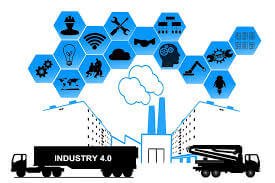
The internet industry is perhaps the most notable industry that takes advantages of data science. Every search engine, including Google, takes help of data science algorithms to provide the users with best results for their searched query within just a fraction of seconds. Apart from search, the entire digital marketing landscape makes use of data science. Starting from digital billboards to the display banners on websites – data science algorithms are used almost everywhere.
In addition, if you’ve ever used price comparison websites, you should have an idea of the convenience of being able to compare the price of an item from different vendors at one place. These websites, powered by data science, can be found in almost every industry like technology, automobiles, hospitality, durables, among others.
3- Banking industry

In general, people don’t consider the banking industry as an exceptionally high-tech, but with the help of data science, the scenario has transformed entirely. They employ natural language processing and predictive analytics to help customers view information about upcoming bills or banking transaction histories. Fraud and risk detection is another important application of data science in this industry.
Banking institutions were fed of losses and bad debts every year. However, they collect lots of data during the initial paperwork of their customers. With the help of data science practices, they’re now able to perform tasks like past expenditures, customer profiling, and other crucial variables to analyze the probabilities of default and risk. It also helps them to offer their financial products based on clients’ purchasing power.
4- Healthcare industry

Another major implementation of data science can be found in the healthcare industry. Making crucial decisions and drawing conclusions based on data and implementing the medical knowledge in the best effective way possible to improve quality and safety has made possible with a robust data science strategy. With the help of data science, crucial parameters like brain activity, stress levels, sleep pattern, blood glucose levels etc can be monitored to avert various health problems.
Healthcare service providers also use data science to improve diagnostic efficiency and accuracy. Deep learning techniques are being implemented to read imaging data and to reduce diagnostic failure rates. Another prominent use of data science in this field can found wearable trackers that transmit critical information to doctors about their patients. Compiled data captured over time helps doctors to get a comprehensive view of the wellbeing of their patients. Public health departments also implement data science to prioritize food safety inspections of their facilities.
5- Energy industry

The energy industry has to maintain a fine balance of providing the right amount of energy at the right time. Too little supply and the customers are likely to find another provider, too much supply and you lose profit. However, with the help of data science, service providers are getting insights about the demands and planning ways of cost reductions in down markets.
By studying historical demand, they can predict accurate energy demands based on anything from the time of day to the seasons and provide the right quantity of energy required. Data analysis also helps them discover new energy sources, avoid power outages, cut costs on drilling and exploration, among others.
6- Automotive industry

Data science, artificial intelligence, and machine learning are the key technologies that help to process products in this industry. Combined use of these technologies help automotive manufacturers attain a lot of things – from improving quality of production to maintaining operations like procurement, distribution to getting valuable insights about purchase prices, delivery reliability, discounts, raw material specifications, hourly rates, among others.
7- Telecommunications industry

Unquestionably, telecom companies are in a position to capture huge amounts of customer data and by using data science, they provide more personalized services that customers actually want. With the emergence of more devices and advanced technologies for communicating, there’s a need for telecom providers to offer more diversity in their services.
With the help of data science, they’re now able to segment the market more accurately and provide exact deals according to their customers’ needs. They’re now getting insights about almost everything – from data usage patterns, customer care history, video choices and social media activity to website visits, past purchase patterns, search patterns, and more by implementing data science.
8- Transportation industry

Data science is being used by public transportation providers to increase the number of successful journeys. They use statistics to map user journeys in order to manage unexpected circumstances and provide people with personalized details. Authorities can minimize the distance travelers need to walk to board buses or how many travelers are on a given bus.
In the rail industry, onboard sensors provide details about braking mechanisms, mileage etc of trains. Here, data science professionals attempt to find useful patterns that help them in improving operations. Sometimes they may even discover chains of events which lead to equipment failure, for example.
9- Airline industry

Across the world, the airline industry is known to face heavy losses. Most of the airline service providers are struggling to maintain their operating profits and occupancy ratio. With the need to offer attractive discounts to customers and increasing rise in air-fuel prices, the situation has become even worse.
However, with the help of data science, airline companies are now able to identify strategic areas of improvements such as predicting flight delay, driving customer loyalty programs effectively, deciding on the class of airplanes to purchase, deciding on whether to land at the destination directly or take halts, among others.
10- Construction industry

It’s another prominent industry where data science technologies are being used heavily – from tracking average time to accomplish tasks to monitoring material-based expenses. With the help of data science, construction companies are now able to monitor field service metrics like referral rates and revenue, the lifetime values of customers etc, and identify the parts of business requiring improvement.
In addition, they use data science techniques to identify the best place for projects based on anticipated trends and uses. In some instances, construction material suppliers use geographic data and analytics to offer price transparencies. They use insights derived by the analytics tools to offer lower rates to the customers while reducing inconsistencies in their pricing processes.
Final takeaway

The above list is obviously expandable as there’re many other industries and fields where data science is being used prominently. For example, it’s being used in human resources, gaming, marketing, different government sectors, and almost every sector where data gets generated. In the marketing domain, data science techniques are used to decide which items are best for cross-selling and up-selling based on the customers’ behavioral data. In human resources, it’s used to measure employee performance, identify which employees are likely to leave, decide employee bonus, among others.
Another common yet exciting use of data science technologies can be found in image recognition and speech recognition. Today speech recognition products like Cortana, Google Voice etc are getting more and more popularity.
In earlier times, when data science wasn’t in use like it’s today, professionals relied on guesswork heavily when making crucial business decisions. However, with the help of data science techniques and tools, they’re now able to look through massive amounts of data and feel confident and accurate when figuring out innovative ways to deal with crucial things that can help decision makers to take the right decisions in order to increase profitability.
. . .
To learn more about data science, click here and read our another article.
The post Data Science in 10 Pictures appeared first on Magnimind Academy.
]]>The post Why Should I Become A Data Scientist? appeared first on Magnimind Academy.
]]>Leaderships are also gearing up to change their strategies based on their used/unused data sources to get actionable insights from their present as well as future business models. Put simply, data-driven decisions are ruling the business world. Every company, regardless of how big or small it is, looking to employ data scientists who can understand analyze huge chunks of data.
Now, the thing is that becoming a data scientist isn’t easy at all, though some institutions try to portray it like that. You’d need to invest lots of hard work, a significant amount of time and money. And if you want to go by the traditional way, simply it’ll take a couple of years to become a data scientist. All these raise an obvious question – despite all these things, why are people putting their best effort in to become a data scientist?
Here we’ve put together the best reasons for which you should consider becoming a data scientist. Let’s have a look at them.
1- Key reasons to become a data scientist

You may are already aware that the job of data scientist has been declared as the century’s hottest job. Companies, both large and small, across the globe are clamoring to find these professionals who can work on data and then communicate their findings that can be beneficial to the companies. That’s something your employer will be enjoying but what will you be getting as a data scientist? Let’s find out.
1.1- Developed analytical thinking
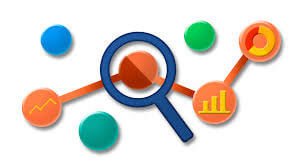
As a data scientist, you need to work with data. Business decision makers heavily rely on people like you to understand the outcomes of their present and/or future business models. As a result, your job responsibilities involve constant learning as well as practicing data science.
For example, you’ll be able to understand all the crucial statistical bias types what are just strange things to most people. Therefore, you’ll be more aware of real-life situations and will look at everything with an analytical bend of mind. So, your ability for analytical thinking will automatically become much higher than average.
1.2- Unbeaten salaries

In the U.S., a data scientist with 1 to 3 years of experience makes an average of $106,000 per year and it’s same in the European countries as well. Data scientists make 2-3 times more money than the local average salary. We’re not saying that money is everything, but it’s always good to know that you don’t need to worry about it, so you can concentrate on more exciting things.
And if you become a data science manager, you can earn almost the same as the doctors do. So, without spending years to become a doctor, as a data scientist, you can earn almost the same and even more sometimes. Isn’t that pretty amazing?
1.3- Experience matters a lot
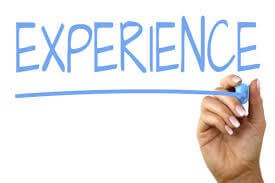
Experience is perhaps the most common word that can be seen any job advertisement and in general, companies want employees with a lot of it. However, when it comes to the experience of a data scientist, a couple of years of experience can easily help you climb the corporate ladder up, whereas in other fields it normally takes more than a decade. And it’s a universal truth that wages match up with the experience levels.
As of now, organizations across the globe are desperately looking for data scientists. This scenario may and probably will change in the future, but looking at the present formal education required to become a data scientist, it can be expected that this change will not take place any sooner than next 5-10 years. So, if you start your journey to become a data scientist now, after a couple of years, you’ll be in a position that’s in great demand.
1.4- Job hunting becomes easier

Getting your first job often becomes a bit trickier, especially if you’re aiming for a good job but this isn’t the case with data scientists. These people are in extremely high demand and there’s an acute paucity of them. Companies have recruiters dedicated solely to find these professionals.
While other job applicants in other fields are pestering recruiters in different ways, as a data scientist, you don’t need to even think about it. All you need to do is let the world know that you’re looking for a job. The demand has become so dire that even if you’re doing a job, hiring managers will try to lure you away with better offerings.
1.5- A wide range of options

Every single day a huge amount of data is being generated by different sources. As a result, the data science field is evolving rapidly because of the increasing need for deriving actionable insights from that data. Data scientists come with a wide range of skillsets to leverage data to help businesses to make better business decisions. So, the work opportunities offered to them aren’t only exciting but diverse in nature as well.
There’re many exciting fields have already emerged within the field of data science. Some of them include machine learning, artificial intelligence, together with some newer technologies such as edge computing, blockchain etc that employ various techniques and practices within the data science field. So, as a data scientist, you’re open to take your pick from a wide range of industries according to your preferences.
1.6- Ability to start own entrepreneurial venture

Creating something of their own has been a dream of lots of people but they often fail to make it through because of their lack of expertise and knowledge. To become a data scientist, you’ve to learn coding. And when you’ve a solid understanding of coding, you’ll be able to develop your own product(s), or the prototypes at least.
It’s a well-known fact that learning how to code opens up a new world for you. You may have heard the popular saying in the data science domain – a good coder may not be a good data scientist, but a good data scientist is surely a good coder.
2- Key things you need to remember

Hopefully, the above read has made you motivated enough to become a data scientist. Now, a common question asked by fresh data scientists is should I join a large or startup company? According to us, it entirely depends on your preferences and working style. Startups usually offer less micromanaging and more freedom. It also means that you’ll receive less guidance and will need to figure out stuff on your own that can help in making progress.
On the other hand, when you’re employed in a big organization as a data scientist, you’re likely to experience clearly defined pre-existing processes and more structured approaches. In general, you’ll experience less freedom but will be able to be clear about job responsibilities.
However, when you’re a fresh data scientist, you shouldn’t put too much stress in choosing one over the other. If you like an organization, you should give it a try regardless of its volume. If you aren’t satisfied after a couple of months, you can try another.
It’s also important to note that you should be changing organizations after one or two years. The key reason is the majority of the salary hikes you’ll earn in your working life will happen in the first 10 years of your career. For example, you’re hired by a company as a junior data scientist and work there for 2 years. Now, you’re no longer a junior after 2 years and can earn a much higher salary as a data scientist, but it’s unlikely that your company will give you that hike after 2 years. So, you should change the company at that point of time to earn the big bucks.
Final takeaway

To be able to enjoy all the above benefits, you shouldn’t narrow your focus too much when you’re learning to become a data scientist. You can get stuck in situations like you’re an expert in a certain version of a particular technology but companies are actually looking for experts in another version. Ideally, you should try to obtain a broad understanding of data science fundamentals which will be far more valuable throughout your career as a data scientist.
The best thing you can do is to spend the majority of your learning efforts on things that are timeless, such as the base technologies under advanced ones. And the most important part is you must not give up learning ever. As we’ve discussed that the field of data science is evolving, technologies and tools will come and go. It’s your sole responsibility to obtain a good understanding of them to keep yourself on the same page with current industry trends to be able to be accepted by companies across industries.
. . .
To learn more about data science, click here and read our another article.
The post Why Should I Become A Data Scientist? appeared first on Magnimind Academy.
]]>The post Devbootcamps Provide Python or Data Science Certification appeared first on Magnimind Academy.
]]>They now know the domain has the power to mine new insights from huge piles of accumulated data sets (some of which could even be decades’ old), drive efficiencies, and otherwise transform and empower their businesses. From Amazon’s recommendation engines to the home price predictions of Zillow, applications of data science have become more and more high-profile and prevalent. And it’s due to this reason why you’ll find a wide range of data science certifications available in the market today. And it’s not only about the field of data science. Even the subjects related to it such as Python (programming language) are basking in the glory of its huge popularity.
In case you are an IT professional who’s seeking the next big thing to master and reap huge benefits from, data science skills should feature on the top of your list to explore. But before you dive straight into the field to get data science certification, you may consider having a Python certification at first. In case you don’t have enough time to go back to college or take full-time courses to get these certifications, you can consider devbootcamps that take anywhere between 14 and 24 weeks. These bootcamps focus on imparting targeted knowledge – only what you need while cutting out the useless excesses, and let you immediately apply your newly acquired knowledge for solving real-world problems.
Before we take a closer look at devbootcamps for Python or data science, let’s see why these certifications have emerged as the preferred choice of many professionals and even some freshers.
1- They indicate how self-motivated and serious you are about your career

A Python certification or data science certification on your resume will indicate how serious you are about your career. In today’s rapidly advanced digital age where the skills you acquire today go out of business shortly or get replaced by more advanced, newer versions, employers are always looking for candidates who are motivated and have sincere job aspirations.
By working toward having a certification of international recognition in your repertoire, you can prove you’re willing to learn and update your skills. And this will not only catch the attention of your potential employers but even be taken note of by your professional peers. When it comes to finding a better job, your peers too can help you find one that’s suits your newly acquired Python certification or data science certification.
2- The certifications validate your skills

Having a Python certification or data science certification is like having a stamp of credibility. When potential employers are planning to hire a data scientist or any other professional in the field of data science, the first preference is usually given to those candidates who have a degree or certification from a reputed institute.
Even when you can’t have a full-time degree, a certification from a reputed institute/company would be just as good, if not better. Remember – having an accredited data science certification or Python certification is a proof of your high standards of education.
3- They increase your chances of landing the coveted job

With a certification from a reputed institute/company, your chances of getting hired would increase manifold. A Microsoft study sometime back showed 91% of hiring managers claiming IT certification to have played a chief role in the selection procedure of candidates.
Since earning a data science certification or Python certification isn’t a cakewalk, they are respected highly and open the doors to several lucrative opportunities for those who have such certifications. Since there aren’t many who are certified in the field, your resume will surely stand out from the competition, thus giving potential employers an additional reason to invest in you.
4- They help you stay updated with the most recent industry trends

Since many of these reputed data science certifications or Python certifications offer you lifetime support and networking, they help you stay updated about the latest trends in the domain. In case you’re employed, you won’t have time to look at and use multiple sources to stay updated.
By enrolling with a reputed institute, you can not only enjoy a continuous and highly rewarding learning experience but even network with peers and stalwarts, and stay updated about the latest industry trends. All these would make you turn into a coveted asset for your present and potential employers.
5- They open up various avenues of employment

Today, the power of data science is leveraged across various domains and industries. From transportation and communications to healthcare, retail, defense, entertainment etc, a million avenues would open up before you when you have a data science certification.
Several countries all over the world – from the US and the UK to Germany, France, Italy, China, India and many more are employing data scientists at a steady pace across diverse domains and industries. Thus, having a data science certification would make you eligible for a diverse range of jobs such as data scientist, statistician, solution architect, business intelligence professional, project manager etc.
Perhaps you now understand why it won’t be an exaggeration to say that data science certifications and Python certifications give you a guaranteed ticket to future professional success. And since you don’t even need to quit your present job to earn these certifications, you can enhance your skillsets while building upon your job experience.
Perhaps you are now wondering how you can earn your Python certification or data science certification in the fastest possible time. If so, the answer lies in devbootcamps.
6- What to expect from devbootcamps offering Python certification?

You’ll find various levels of Python certifications made available by different devbootcamps – from those suitable for absolute beginners (with zero to a little bit of programming knowledge) to those in the middle rungs to those who are experts in the field.
As a beginner, you can expect to begin with Python basics (data types, expressions and variables, String operations etc), and then move onto Python data structures (lists and tuples, sets, dictionaries etc), and Python programming fundamentals (conditions and branching, functions and loops, objects and classes etc).
After you know the basics, you can expect the devbootcamps to let you working with data in Python, which could involve Python file handling (create, open, read, append, write, delete files etc), loading, saving, and working with data using Python Pandas etc.
Those who already have knowledge of Python and some other programming languages can opt for advanced level Python certifications. In these cases, you’re likely to handle several technologies like Python, Flask, MySQL, AJAX, APIs, and Django – to name a few. Some topics that could be covered by the devbootcamps are
- SQL queries and ERD diagrams
- OOP in Python
- CRUD operations
- Web security basics
- MVC (Model View Controller) framework and design patterns
- Algorithms in Python
- Application deployment
- Test-driven development
7- What to expect from devbootcamps offering data science certification?

Similar to Python certifications, data science certifications too are available for candidates with different levels of proficiency in the subject. Since data science is a hybrid field, most devbootcamps need their applicants to have some grounding in either computer science, or statistics/math, or have both to be accepted into a program. You’ll find the more advanced devbootcamps having more strict educational prerequisites.
Usually, devbootcamps offering data science certifications for beginners (with no programming background) begin with the basics of the field, introduce them to the important programming languages like Python and R, impart knowledge of working with SQL and Pandas, and then move onto their real-world applications in various field of data science like data analysis, data visualization etc.
Experienced professionals seeking data science certifications via devbootcamps can dive straight into the complex world to hone their skills in R, Python, Hadoop, JavaScript, Spark, D3, NLP, Naive Bayes, Machine Learning etc, after which they can apply their knowledge to address real-world problems.
Some devbootcamps may even offer different educational pathways like data scientist, data analyst, data engineer etc, from which you can take your pick based on what suits your aspirations and skills the best.
Final words

You can find both online and on-site devbootcamps that offer data science certifications and Python certifications. Apart from the course curriculum they offer, you should also check the support they provide you with – both during and after the completion of the course.
If you don’t get mentor support and guidance while handling your coursework or real-world projects, the ability to network with and learn from your peers, and get updates and networking opportunities even after finishing the course, it may be wise to look for devbootcamps that offer these features.
. . .
To learn more about Python, click here and read our another article.
The post Devbootcamps Provide Python or Data Science Certification appeared first on Magnimind Academy.
]]>The post Is It Worth Investing in Data Science Bootcamp? appeared first on Magnimind Academy.
]]>No wonder why many IT professionals as well as those with maths/statistics background are joining and even planning to step into the field of data science. Even freshers are eyeing the field with great interest and weighing their options that could help them give an edge over their competitors.
Irrespective of which category you belong to, if you’re thinking about all the different routes that can help you become a data scientist, perhaps the thought of attending data science bootcamps have crossed your mind. But you may be skeptical of joining one as there’s a lingering question at the back of your mind – would the effort, time, and money you invest in one of these data science bootcamps be equivalent to the information you get? Before trying to find an answer to your question, let’s consider a few things.
1- Three key elements of good data science bootcamps
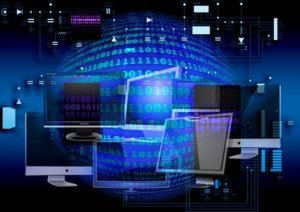
Before you wonder what criteria effective data science bootcamps should have, you need to have a clear understanding of what these bootcamps are all about. You can call them a “fast track” way that lead to well-paying jobs in the field of data science.
Thanks to their practical learning curriculum, the bootcamps pack in just what you need to know while steering clear of unnecessary elements. When you factor in other advantages like shorter class times, lower tuition costs, the flexibility to pick courses that interest you, they may appear to be the ideal vehicle for fast-track, effective learning.
Though data science bootcamps are often praised for generating interest in the field and increasing access to it, whether they are really worth it is a big question. After considering what people, who’ve attended such bootcamps say about whether their investments have paid off or not, we’ve found that you should ideally break data science bootcamps down into three key elements – learning style, cost, and outcomes. Evaluating these areas would let you decide if a data science bootcamp offers useful information equivalent to the money you would pay, and the time and effort you would have invested into it. And armed with such information, you’ll be in a better position to make an informed decision.
Let’s evaluate each of the three key elements and find out what you should look for when taking your pick from several data science bootcamps:
1.1- Learning style

Data science bootcamps are mostly known for being extremely targeted, hands-on, and fast-paced. If you think you’ll pay up, join a bootcamp, and then magically absorb whatever information is being shared over the next couple of weeks, you may be in for a rude shock. So, before you start your search for data science bootcamps, you should get a clear idea of which learning style your prefer – self-paced, fully instructor-led (one-on-one or in-class instructions followed by open discussions, group work with peers, and exercises with guidance from instructors or teaching assistants etc).
You should remember that most data science bootcamps aim to help student’s master specific skills within a pre-professional setting, where you’ll be surrounded by high-achieving peers. If you have the zeal to work in a fast-paced environment and learn from and collaborate with peers, data science bootcamps could be worth attending for you.
Before you get ready for data science bootcamps, you should also take stock of your background and skills you already have. It’s important to keep in mind that usually, data science bootcamps are designed for students with some expertise in mathematics/statistics and coding. So, if you’re from a maths/statistics background but don’t have any programming skills, it would be better to pick up a few relevant one like Python, R etc before you dive into a bootcamp to learn data science.
Though you may also come across some data science bootcamps that take in coding novices, it would be much better to have the basic knowledge at first as that would make you fit to absorb the fast-paced, high-intensity curriculum that most bootcamps have.
So, you should know what your skill level is and the type of learning that suits your schedule and preference the best before enrolling into one of the several data science bootcamps that are available in the market these days.
1.2- Cost
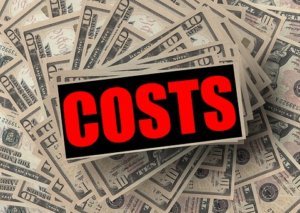
If affordability is the sole driving factor (though it should not be) while choosing from a handful of data science bootcamps, you’ll have many affordable options. Depending on the course curriculum on offer, the level of expertise of the instructors, the reputation of the institute that’s organizing the bootcamp and its collaboration with famous institutes/companies for offering the certification, the cost of attending the bootcamp would vary. Yet, they would mostly be substantially much more affordable than getting a full-time master’s degree or Ph.D. from universities. And when you consider how fast you would be ready for the job market (in 14 to 24 weeks rather than spending two years to get your master’s degree), data science bootcamps at a fraction of the cost of your usual university degree program would seem to be a far lucrative option.
If you’re a beginner in the field of data science, you would surely like to start earning money as a data scientist as soon as possible. In case you’re planning a career change or want to improve your chances of bagging that covered data science job, doing it fast without burning a big hole in your pocket would surely seem like the best option. And that’s where data science bootcamps beat their traditional counterparts by a wide margin.
1.3- Outcomes
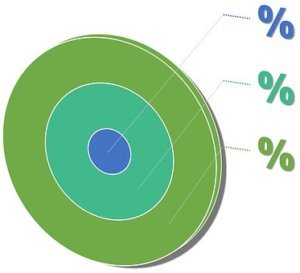
Many bootcamp attendees think it all ends when they finish the curriculum. But did you know what happens after any bootcamp is actually what matters a lot? Yes, that’s true. After all, it you can’t get the pay rise you have been eyeing for long, or fail to get hired for a coveted data science job, or find that you dislike your job, you may be forced to think if investing your time, money, and effort on the bootcamp was really worth it.
Ideally, you should short-list data science bootcamps that offer you support even after you’ve finished the course. It could be in the form of updates about recent vacant posts and industry trends, the chance to network with your peers, use discussion forums to find answers to questions or problems where you get stuck, get help from the instructors etc.
2- Money invested vs. information acquired – are they equivalent?

Most often, people jump into the very first bootcamp they can find and then complain they couldn’t learn much, or that it didn’t match their skillset or wasn’t equivalent to the money they paid. Like everything else in life, before choosing one from the many data science bootcamps, you need to weigh them on certain parameters as discussed earlier. If you don’t have some background in coding and math, and yet join a bootcamp that’s designed for advanced users, simply wishing to learn it all within a few weeks, you’ll be setting yourself up for failure. So, it won’t be long before you find the curriculum too tough and stressful to understand.
At this point, you may even feel cheated but the responsibility of it all would be on you before you jumped in prior to understanding your expertise level and your readiness for the bootcamp. But this doesn’t mean you need to feel discouraged.
Even if you have no coding background, you can still find some pretty useful data science bootcamps that will get you ready as a programmer within a few weeks. And once you’ve got the basics of the relevant programming languages like Python, R etc right, and even tacked a few projects as well as real-world problems, you can take the next step forward by attending some more extensive data science bootcamps that let you dive deeper into the complex world.
And with a bit of careful planning and the will to see it through till the end (even when the going gets tough and stressful, which might happen for many), you’ll find that the money you pay for your data science bootcamps is indeed equivalent to the information you get or often, much more.
Final words

Data science bootcamps may not be fit for everyone. But if you prefer shorter data science programs that are available at lower prices and let you learn fast from experts in addition to giving you unmatched hands-on experience, data science bootcamps run by industry experts and reliable institutes could be exactly what you need.
. . .
To learn more about data science, click here and read our another article.
The post Is It Worth Investing in Data Science Bootcamp? appeared first on Magnimind Academy.
]]>